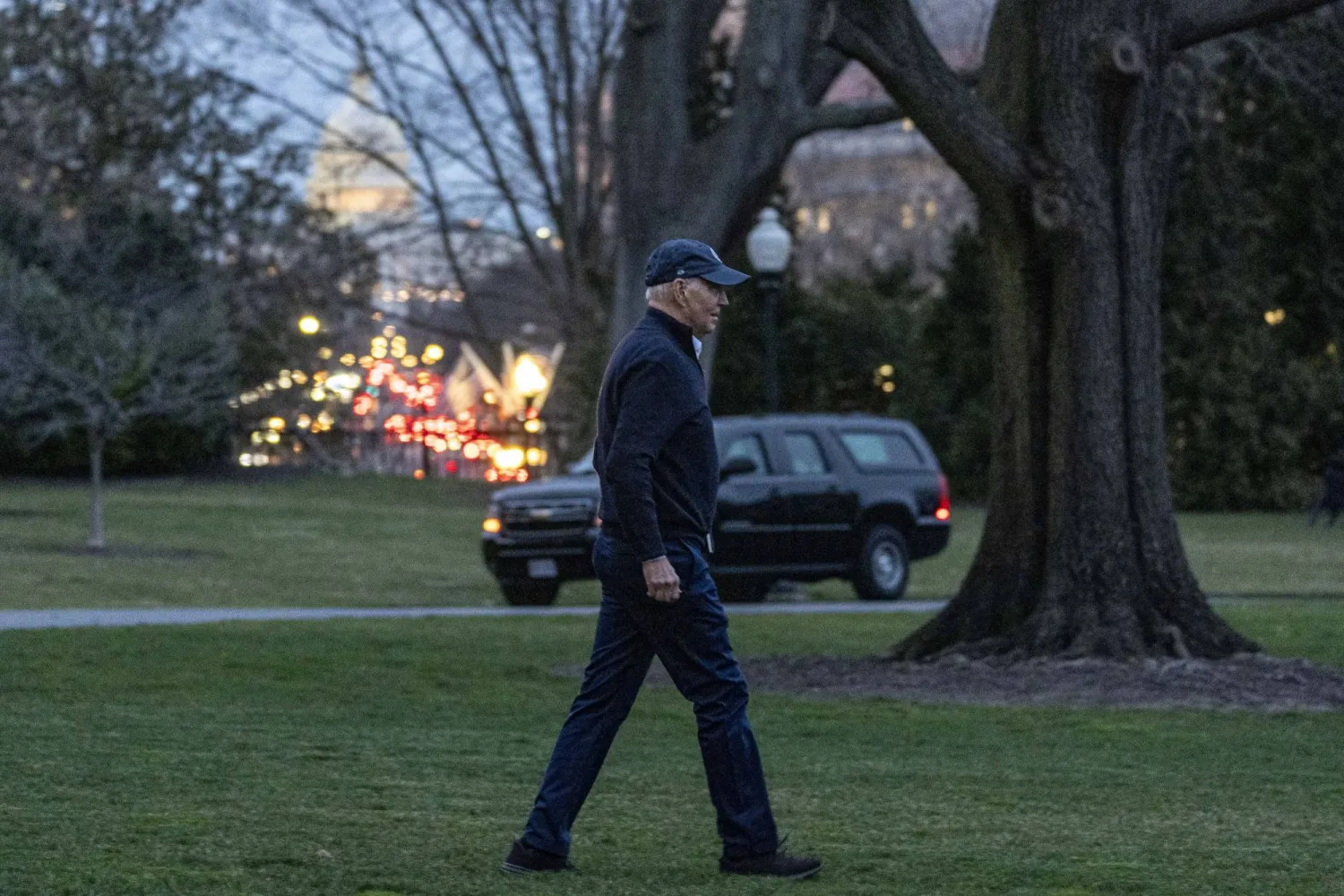The US will begin airdropping emergency humanitarian assistance into Gaza, President Joe Biden said Friday, a day after more than 100 Palestinians were killed during a chaotic encounter with Israeli troops.
The president announced the move after at least 115 Palestinians were killed and more than 750 others were injured, according to Gaza’s health ministry, on Thursday when witnesses said Israeli troops opened fire as huge crowds raced to pull goods off an aid convoy.
Biden said the airdrops would begin soon and that the United States was looking into additional ways to facilitate getting badly needed aid into the war-battered territory to ease the suffering of Palestinians.
“In the coming days we’re going to join with our friends in Jordan and others who are providing airdrops of additional food and supplies” and will "seek to open up other avenues in, including possibly a marine corridor,” Biden said.
The president twice referred to airdrops to help Ukraine, but White House officials clarified that he was referring to Gaza.
Israel said many of the dead were trampled in a stampede linked to the chaos and that its troops fired at some in the crowd who they believed moved toward them in a threatening way. The Israeli government has said it is investigating the matter.
The head of a Gaza City hospital that treated some of those wounded said Friday that more than 80% had been struck by gunfire.
Biden made his announcement while hosting Italian Prime Minister Giorgia Meloni at the White house.
“Aid flowing to Gaza is nowhere nearly enough," Biden said. "Now, it’s nowhere nearly enough. Innocent lives are on the line and children’s lives are on the line. We won’t stand by until we get more aid in there. We should be getting hundreds of trucks in, not just several.”
The White House, State Department and Pentagon had been weighing the merits of US military airdrops of assistance for several months, but had held off due to concerns that the method is inefficient, has no way of ensuring the aid gets to civilians in need and cannot make up for overland aid deliveries.
Administration officials said their preference was to further increase overland aid deliveries through the Rafah and Kerem Shalom border points and to try to get Israel to open the Erez Crossing into northern Gaza.
The incident on Thursday appeared to tip the balance and push Biden to approve airdrops. White House national security spokesman John Kirby said that airdrops are difficult operations, but the acute need for aid in Gaza informed the president's decision.
He stressed that ground routes will be continued to be used to get aid into Gaza, and that the airdrops are a supplemental effort.
“It’s not the kind of thing you want to do in a heartbeat. you want to think it through carefully," Kirby said. He added, “There’s few military operations that are more complicated than humanitarian assistance airdrops.”
Biden Approves Military Airdrops of Aid into Gaza

The Dome of the US Capitol Building is visible as President Joe Biden walks towards Marine One on the South Lawn of the White House in Washington, Friday, March 1, 2024, to travel to Camp David, Md., for the weekend. (AP Photo/Andrew Harnik)

Biden Approves Military Airdrops of Aid into Gaza

The Dome of the US Capitol Building is visible as President Joe Biden walks towards Marine One on the South Lawn of the White House in Washington, Friday, March 1, 2024, to travel to Camp David, Md., for the weekend. (AP Photo/Andrew Harnik)
لم تشترك بعد
انشئ حساباً خاصاً بك لتحصل على أخبار مخصصة لك ولتتمتع بخاصية حفظ المقالات وتتلقى نشراتنا البريدية المتنوعة







